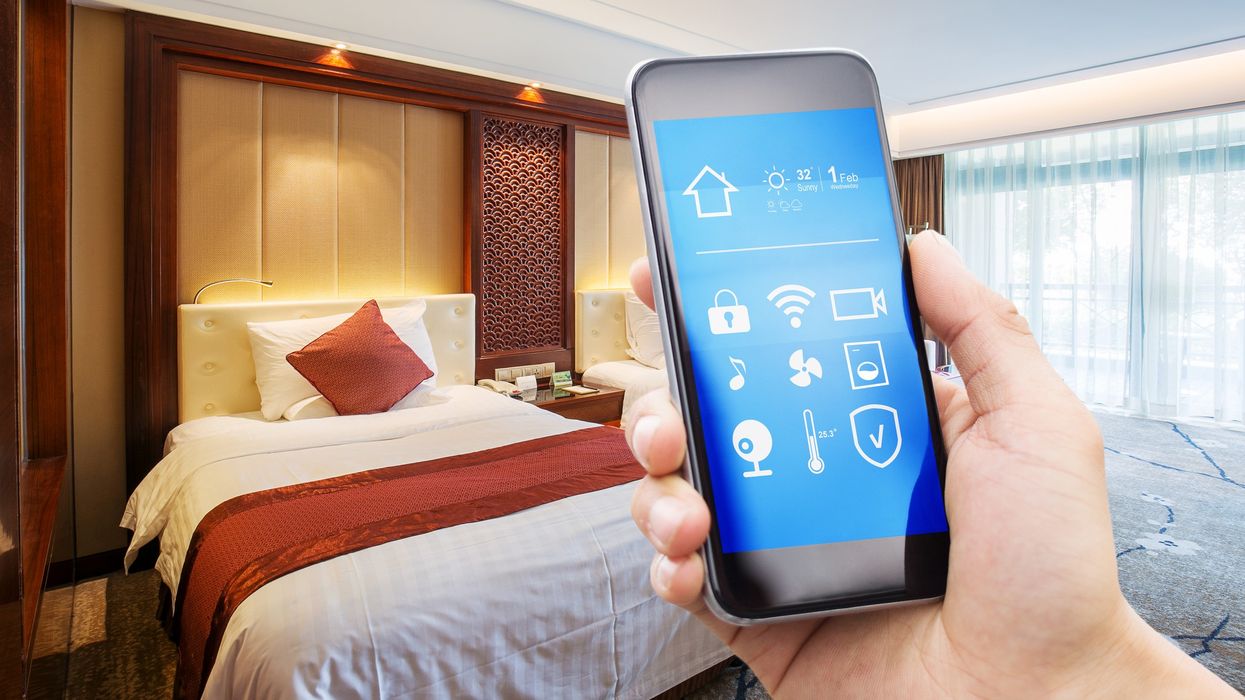APPROXIMATELY THREE OUT of four travelers agree that Americans are prioritizing travel more in 2024 and prefer a digital, self-service experience for their hotel stays, according to a recent survey by Mews, a hospitality cloud provider. Nearly 80 percent of U.S. travelers favor hotels with fully automated front desks or self-service kiosks, and more than 40 percent prefer checking in via a hotel's website, app, or digital kiosk.
“Trends in hospitality are ever-changing but we’re seeing indicators that people are prioritizing travel again,” said Richard Valtr, Mews’s founder. “While we’re seeing some softness in mid-market and select service hotels, the luxury sector seems resilient. Guests visiting luxury properties are spending more on bucket list trips and staying for longer.”
The poll of 2,000 people, evenly split between travelers and hotel workers, revealed that hotel workers anticipate an increase in guest use of technology during travel. A quarter of them expect guests to check in more frequently via hotel websites, apps, or digital kiosks compared to previous years.
The survey, conducted by OnePoll, found that around 43 percent of travelers prioritize in-room smart home devices, with 34 percent preferring keyless room entry, 27 percent mobile room entry, and 24 percent digital ordering. Additionally, 36 percent of travelers have used AI for travel recommendations.
“We’re also seeing a continuous rise in people extending work trips for some added leisure time and blending work with vacations,” Valtr said. “The most forward-thinking hotels are tapping into this trend by embracing personalized guest experiences and offering a variety of amenities that appeal to differing guest needs. More and more hotels are adopting technology that creates seamless experiences for their guests, no matter the reason for their trip.”
The study found that nearly a third, around 29 percent, of employed Americans admitted they’ve worked remotely on vacation without telling their bosses. However, around 52 percent said they would use their vacations to work remotely. Four in five working Americans prefer to work remotely from their hotel. About 69 percent prefer working from their hotel room, about a quarter prefer the hotel pool or spa, and nearly 25 percent chose a hotel bar or restaurant.
On the other hand, those traveling for work admit that business trips open the door to other opportunities. Nearly half, around 48 percent, of respondents have extended their work trips into vacations.
Hotel workers anticipate that 39 percent of guests will tip more, 38 percent will extend their stay more frequently, and 31 percent will use hotel amenities more. Additionally, 79 percent said guests "always" or "often" ask for local recommendations.
A recent survey by the Hospitality Women’s Innovation Council found that just 20 percent of hotel professionals believe the current tech stack adequately achieves efficiencies, cost savings, and guest care. Around 91 percent of respondents called for better technology company collaboration on integrations, while 86 percent highlighted the need for improved integration processes to boost technology investment.






